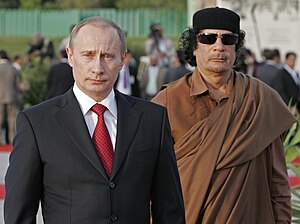The protests reached
Oman. Reports from the area are talking about
200 people asking a stronger stance against corruption, while some other news widespread on social media are mentioning 2000...Mispellings?
Plus,
some thoughts about the waves of self-immolations. It is a form of political protest not brand new in politics, as it showed, in January 19 1969,
Jan Palach, in the then Czechoslovak Communist Republic or the Tiananmen protesters in 1989. I don't have enough information for reading it according to an universal pattern, as a pure protest against an oppressive regime, without any cultural and religious specific frames.
I want to share a couple of non-scholarly thoughts on what it is going on in the area.
In the last two weeks, it was an over increasing avalanche of information regarding the protests and evolutions or involutions from the region, mostly, but not exclusively in English, French, Arabic. New blogs are created or old ones discovered. I had a very short virtual tour the last hour of many interesting and creative blogs written by people living in the region. It's a pitty that we found them only now, as many of them are hosting good discussions about other topics than politics and protests. For understanding what it is going on now, you need a lot of information about the cultural and mentalities' background. Unfortunately, we are now facing a burning out of too much data, news - not always accurate - about events, persons and situations leading to fortuite conclusions.
For the moment, we see only shadows, in an Oriental-wise "ombres Chinoises" theater in the style of "1001+ nights". We, in the West, we optimistically wish the blessings of democracy spreading all over the world. It will be wonderful, but...
- those countries never experienced the basics of what we call democracy: separation of power, free and transparent institutions, respect for human - and women - rights, free media, free elections. You need years and deep beliefs to create such habitus, to educate people to refuse and oppose any kind of dictatorship/non-democratic regimes and politicians.
- fighting corruption in an effective way it is a good line of a manifest for the future, but the idea of "corruption" is projected in the discourses of some religious leaders as the fault of "secular" leaders, aiming to force modernization of their societies. According to those statements, the West is portrayed as "corrupt", in comparison with the societies ruled by the laws of Islam.
- excepting the religious parties and organizations - the Muslim Brotherhood is an example, banned or isolated from the political scene, there are not
too many, if any, secular structures able to assume coherently and without relying on the (sometimes extreme) religious leaders. The experience and presence of some exiled leaders is not automatically the key for a separation from the past - see, for example, Iraq.
- this complex situation going on in the Middle East would likely block than empower further discussions between the state of Israel and the representatives of the Palestinian Authority - unable to take dramatic decisions exclusively by themselves. For one month, maybe for more.
- I can bet that the same disorientation is shared in Tehran.
All we need is to watch and think and ponder and use our critical thinking capacities.
 Image via Wikipedia//Salman Rushdie
Image via Wikipedia//Salman Rushdie



























